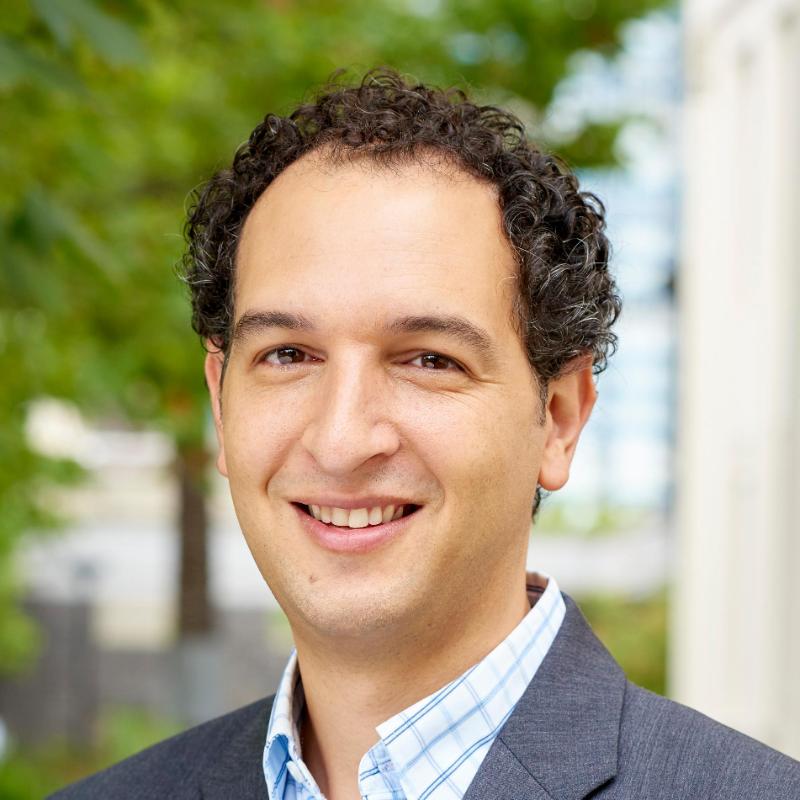
Director
Dr Jonathan Kolieb
Dr Jonathan Kolieb leads BHRIGHT’s work on conflict and peace. Jonathan is a Senior Lecturer in Law at the Graduate School of Business and Law, RMIT University. In relation to business and human rights, Jonathan’s research looks at responsible business in conflict affected areas, business and peace building and children's rights. Jonathan has worked with a range of governmental and non-governmental organisations in the fields of human rights and international affairs - in Australia, the US and the Middle East. These roles include: Consultant for the United Nation’s Secretary-General’s Special Representative for Children and Armed Conflict (New York); Congressional Liaison at the Embassy of Australia in Washington DC; Special Assistant to Ambassador Morton Abramowitz at The Century Foundation (Washington DC); Project Director, Israeli-Palestinian Human Rights Center (Jerusalem).
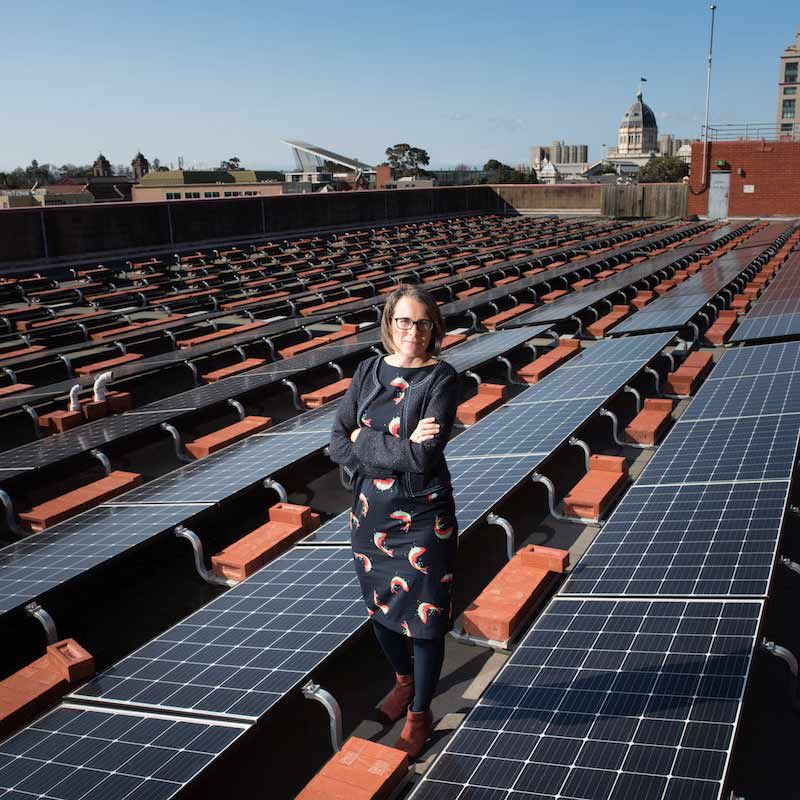
Climate Change and Environment Theme Co-Leader
Dr Anne Kallies
Anne Kallies is a Senior Lecturer at the RMIT Graduate School of Business & Law, researching in the areas of energy, environment and climate. The emphasis of Dr Kallies’ research is on energy and environmental law, which a special focus on renewable energy and electricity market regulation. Her research draws on her study and work experience in Australia and Germany. She holds a German law degree, a LLM and a PhD, both completed at Melbourne Law School. Dr Kallies has previously worked for the German Federal Environmental Agency and has been an administrator and researcher in the Centre for Resources, Energy and Environmental Law at Melbourne Law School.
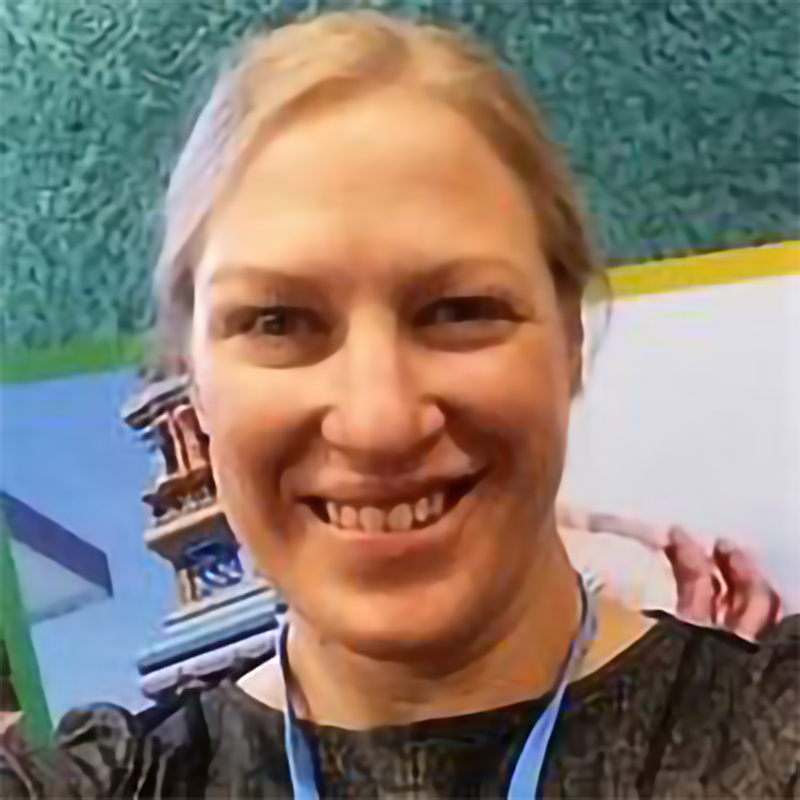
Climate Change and Environment Theme Co-Leader
Dr Vanessa Johnston
Vanessa is a Senior Lecturer with the RMIT University Graduate School of Business and Law. She holds Bachelors, Masters, and PhD qualifications in Law and is a lawyer admitted to practice in Victorian and federal jurisdictions. She gained almost 10 years professional legal experience in the areas of property, commercial, and tax law, before becoming an Academic in 2015. She joined RMIT at the start of 2020. Vanessa’s key area of research expertise is climate change, and its relationship with discrete issues of real property and transport.
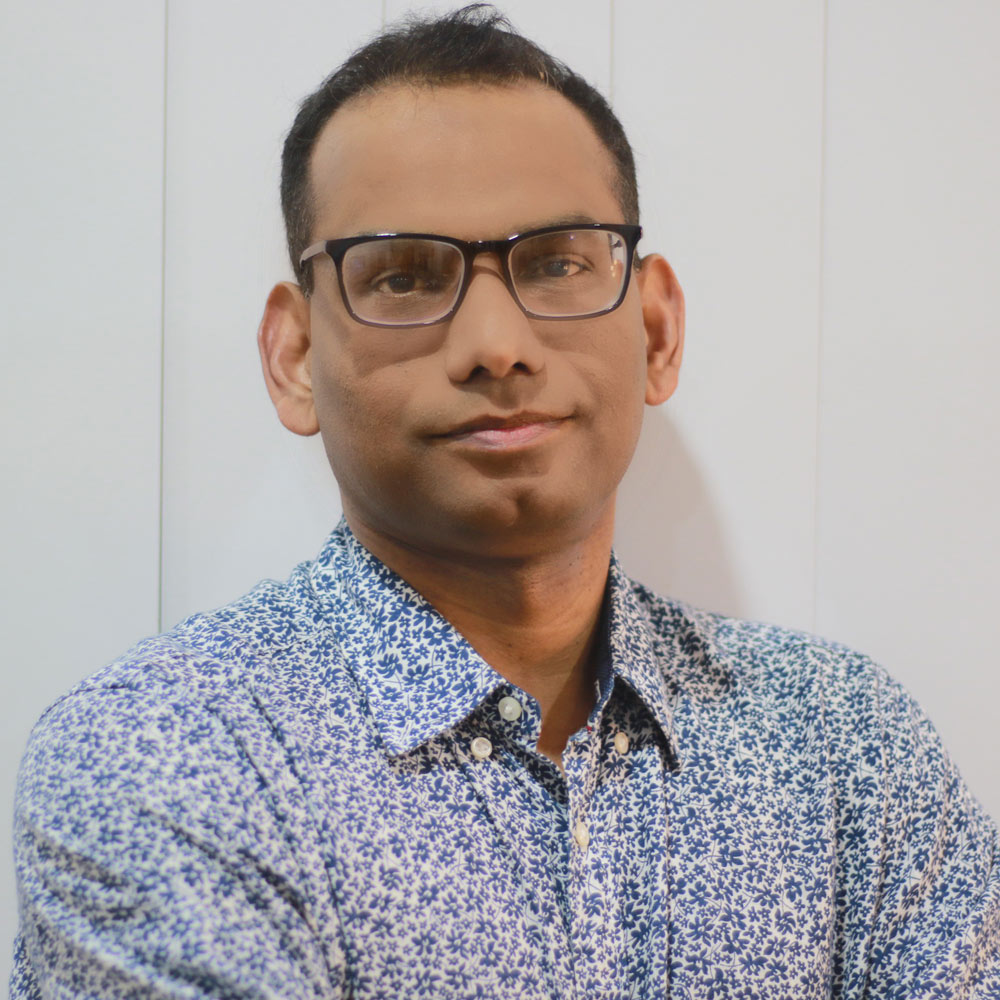
Digital Technologies Theme Leader
Dr Mohammad Alamgir Hossain
Dr Mohammad Hossain is a Senior Lecturer in Information Systems in the School of Accounting, Information Systems, and Supply Chain (SAISSC). His research interests and expertise include the social, behavioural and organisational aspects of emerging technologies. He has developed and led collaborative research teams to produce more than 50 publications and has received more than 1400 Google Scholar citations. Dr Hossain has received industry grants of more than $100,000 and received the SAISSC Dean’s Research Excellence Award in 2020. In addition, he won a best paper award in 2016 and 2013 at the International Federation for Information Processing (IFIP).
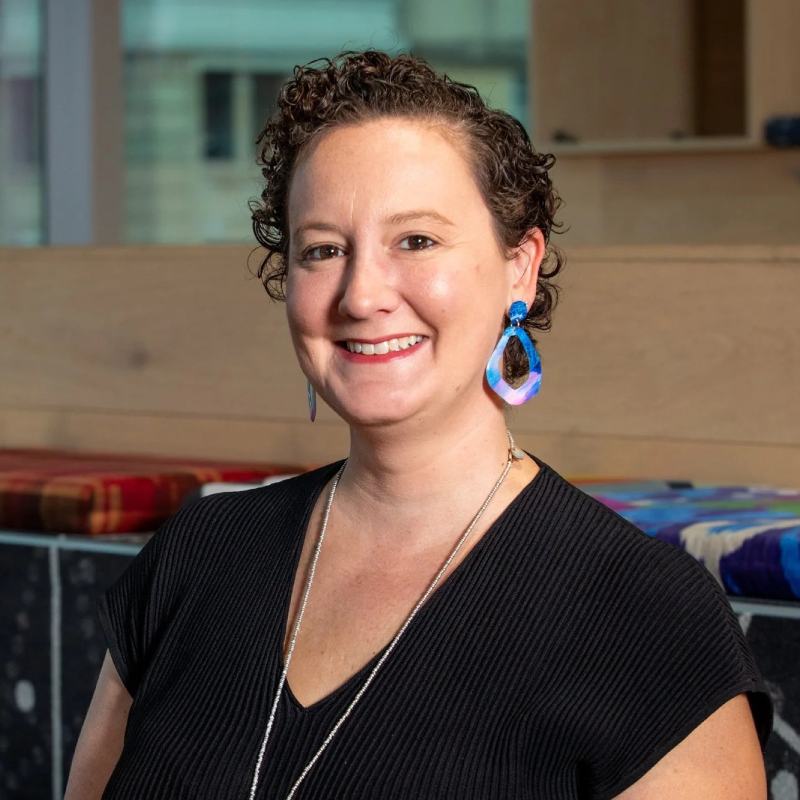
Gender Theme Leader
Dr Melissa Wheeler
Dr Melissa A. Wheeler is a Senior Lecturer and Executive MBA Program Director at RMIT University, with a PhD in social psychology from the University of Melbourne. Her research explores workplace flexibility, gender roles in work and care, leading with purpose, and responsible leadership, with publications in top ranking journals such as Leadership Quarterly, Journal of Business Ethics, and Personality and Social Psychology Bulletin. She is also a regular contributor to Forbes, Psychology Today, and The Conversation, writing on leadership strategy, the future of work, and applied ethics.
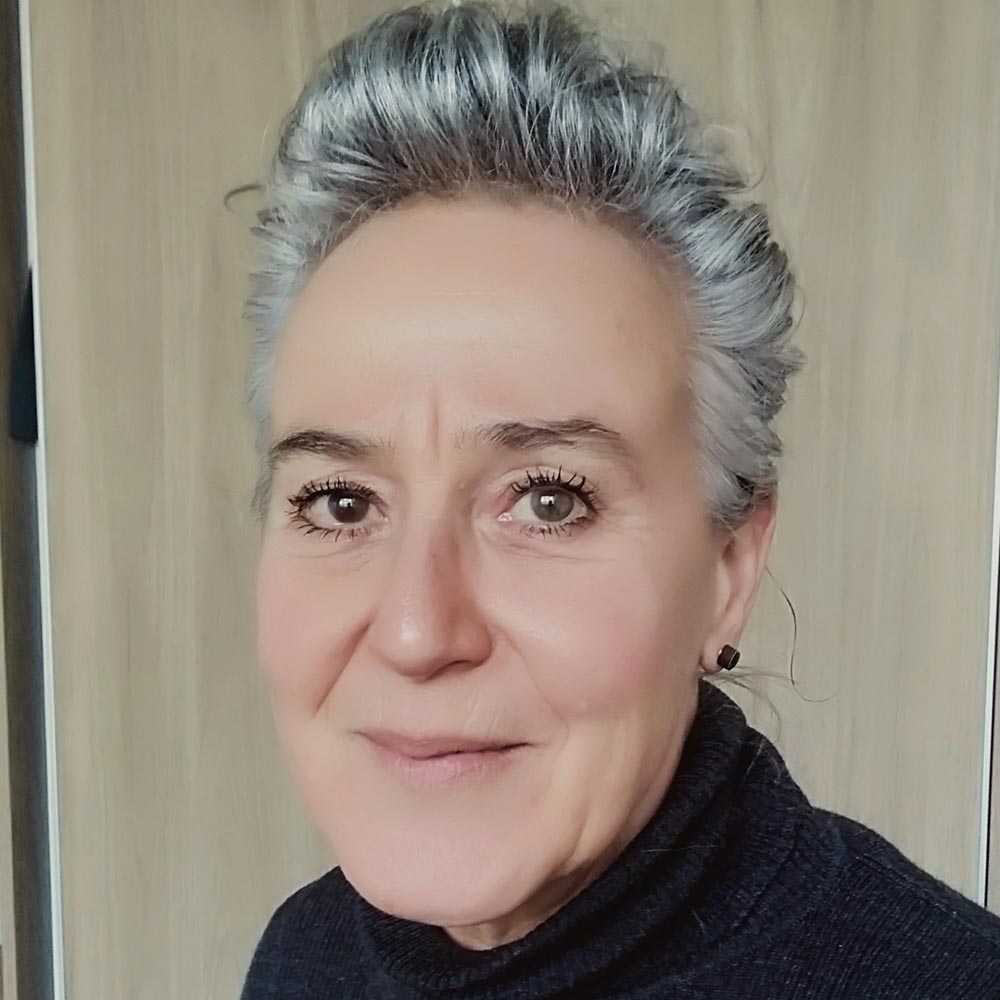
Health Theme Leader
Professor Penelope Weller
Professor Penelope Weller leads BHRIGHT’s work on health. In terms of business and human rights, Penny’s research explores the boundaries between health, government and business and looks at issues such as conditions of detention and obligation of private providers, public health and urban regulation, inclusive practices and health, and the workplace. Penny is an internationally recognised expert on the Convention on the Rights of Persons with Disabilities with special interests in its application to health and mental health law. For many years, Penny has influenced mental health policy debates and law reform in several states Australia and in the United Kingdom. Her applied research is concerned with recovery oriented practice, mental health advocacy and advance statements.
She teaches Administrative Law, Human Rights Law, Jurisprudence and Innovative Justice. She is Chair of the College of Business Human Research Ethics Advisory Network and Deputy Chair of the University Human Ethics Committee at RMIT University. She is a Community Member of the Mental Health Review Tribunal.
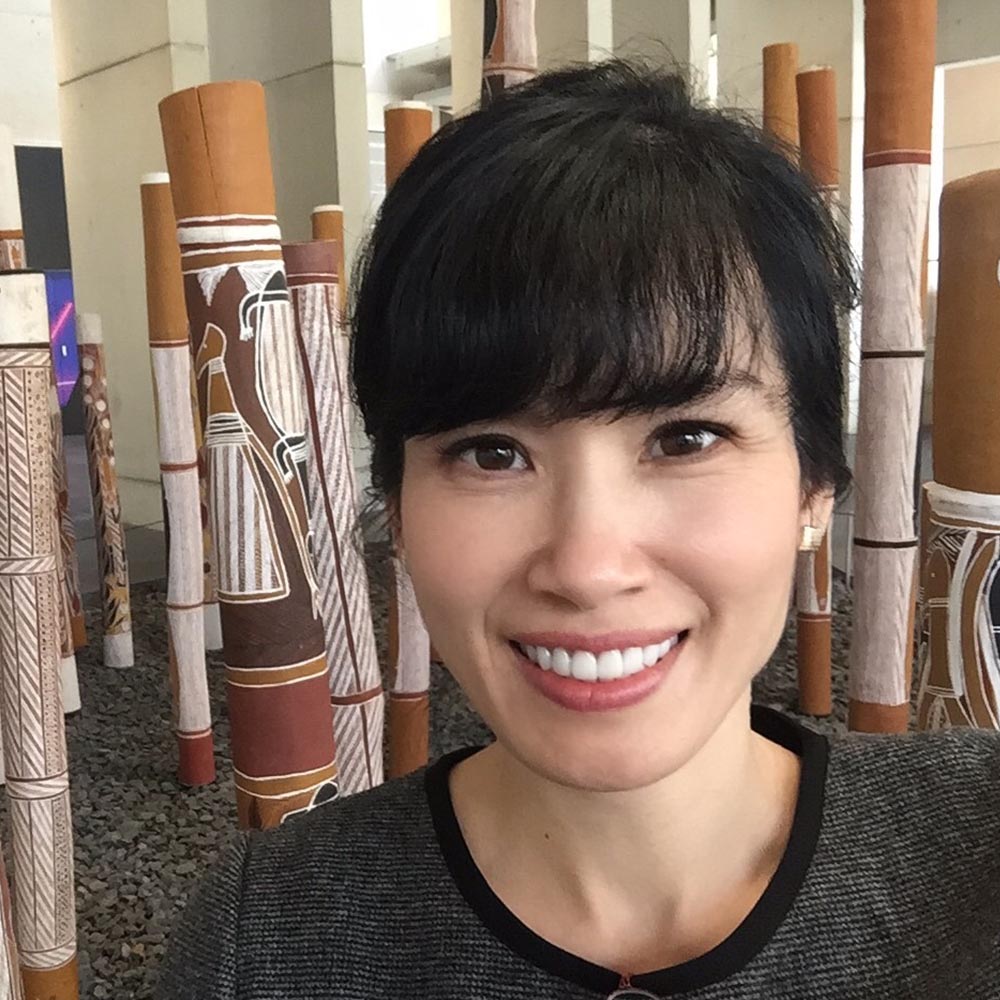
Labour and Supply Chains Theme Leader
Dr Thuy Nguyen
Thuy Nguyen is currently a lecturer at the School of Accounting, Information Systems & Supply Chains. As an academic, she has published papers on issues in logistics and supply chains, particularly issues in information sharing, digital technologies implementation. She is also very interested in maritime transport and labor issues in global supply chains and the maritime industry. Her teaching courses at RMIT are maritime logistics, shipping business management, strategic supply chains, port and terminals management, and transportation and freight logistics.
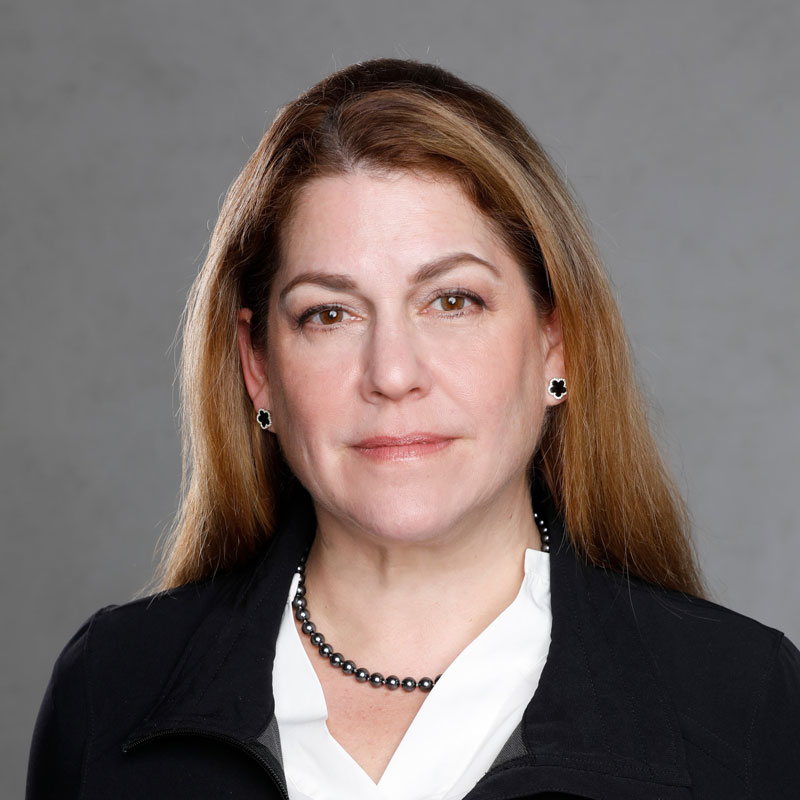
Peace and Conflict Theme Leader
Dr Carol Bond
Dr Carol Bond is a political and social scientist investigating business-related socio-economic and policy topics in the energy and resources sectors. Carol works closely with industry and members of peak bodies including: Energy Networks Australia (ENA), Australian Pipelines and Gas Association (APGA), The Australian Hydrogen Council (AHC), Australian Institute of Mining & Metals (AusIMM), and the Australian Gas Infrastructure Group (AGIG).
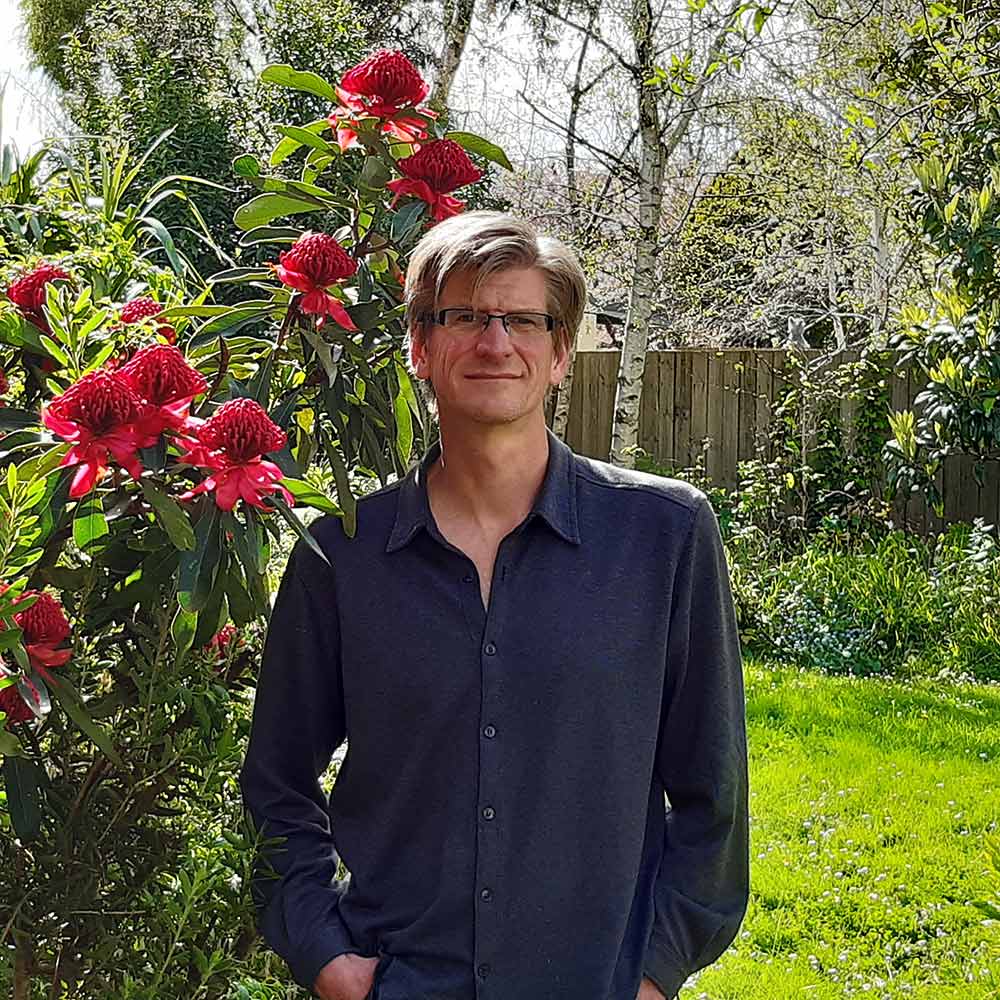
Work in Transition Theme Leader
Associate Professor Darryn Snell
Darryn Snell is an Associate Professor in RMIT’s School of Management and the co-coordinator of the Skills, Training and Industry Research Network. Darryn’s research focuses on employment and skills development questions related to structural adjustment, industrial transition and regional regeneration. As an applied researcher, he has conducted research in a range of industries including manufacturing, agri-foods, electricity generation, cleantech, transportation and logistics, retail and hospitality. He is particularly interested in the ways skills facilitate occupational mobility and the process and actors involved in connecting people to work when they are confronted with job loss and career change. The differences in disadvantaged worker experiences in urban areas versus regional contexts is a major focus of this research. Darryn’s other research areas include: the impacts of technological change on skills and labour demand; Neo-liberalism and its impact on training design, delivery and skills formation; manufacturing decline and revitalisation; and workforce development.
Researchers
Dr Saima Ahmad is working as a Lecturer in Business at the Graduate School of Business and Law (GSBL), RMIT University. Saima is an award-winning researcher and the author of journal articles, conference papers and a book chapter.
Saima's research areas are organizational behaviour and general management in which she has actively published conceptual frameworks and empirical models to advance the creation of sustainable work environments. Her peer-reviewed work appears in numerous impactful journals including Personnel Review, Non-Profit and Voluntary Sector Quarterly, Management Decision, European Management Journal, International Journal of Manpower, Employee Relations, European Business Review, Leadership & Org Development Journal, among many others.
She makes a strong commitment to RMIT’s research environment through her active involvement in the Business and Human Rights Centre, blogs on Acumen and other RMIT sites, and by bringing new partnership and collaborations to RMIT.
As a part of her contribution to teaching and learning within the MBA and MIB programs, Saima coordinates and lectures several courses including Contemporary Issues in International Management, Leading in the Age of Digital Disruption and Business Research Design. She serves on the editorial board of the European Management Journal.
Gabby is an RMIT law student with a passion for action on climate change. She has experience in community engagement and teaching deep democracy through her role as a facilitator with Climate for Change's conversation program. Gabby hopes to use her degree to contribute to Australia's development of just and sustainable business and environmental policy.
Carol Bond is a political and social scientist investigating business-related socio-economic and policy topics in the energy and resources sectors.
Carol is a Lecturer in Management at RMIT University, Australia. Over the course of her career, Carol's work has been concerned with investigating and analysing in how government policy and investment in the energy and resources sectors in Australia affects socio-economic factors both in communities affected by mega projects as well as in communities which are energy insecure. Recently, Carol has been researching how SMEs are affected by a range of developments in the energy sector. Research partners include: the Future Fuels CRC, the Australian Hydrogen Council, Energy Networks Australia, and Advisian.
Core research themes are policy impacts on businesses, energy-related equity & distributive justice issues, and circular economy opportunities. In the course of pursuing this agenda, Carol has published journal articles, a monograph, industry-facing articles, and research reports related to the energy and resources sectors within the field of management studies. Key outputs have been published in: Journal of Business Ethics, Australian Journal of Management, and Ecological Economics.
Carol is a member of the Rotary Club of Melbourne.
Dr Prue Burns is an Early Career Development Fellow (Lecturer, Management) in the School of Management. Her research interests include improving health and social care service delivery and understanding how institutional change may be provoked and harnessed for the social good.
Sara Charlesworth is an RMIT Professor Emerita. She is a socio-legal scholar whose research focuses on gender (in)equality in employment at the labour market, industry and organisational levels. Most recently Sara’s work has focused on care work and gender-based violence and she is working closely with Australian and international unions. She was an expert advisor to the 2018 Australian Workers’ Delegation on the Standard-Setting Committee on Violence & Harassment in the World of Work, 107th Session of the International Labour Conference. Sara has provided expert evidence to various state and federal Parliamentary committees and to the Fair Work Commission on low-paid feminised work. Most recently she provided evidence to the union-initiated aged care work value case before the Fair Work Commission.
Dr Mark Dean is National Research and Planning Officer at the Australian Manufacturing Workers’ Union and Adjunct Principal Research Fellow at the Graduate School of Business and Law at RMIT University. Mark’s research focuses on the development of modern industrial policymaking for manufacturing and questions about how to shape this for a sustainable future of industry and work that can meet goals of both decarbonisation and social justice.
Mark is interested in how we can learn from historic examples of industrial policy implementation and institutionalisation to create and shape markets for complex products and services. His research therefore relates to the frameworks in which manufacturing industries undergo growth and transformation, the institutions that guide these processes, the roles of stakeholders in governance and how skills can be developed for complex, knowledge-intensive products and services.
Mark’s research contributions draw on examples of the need for policymaking to involve collaboration between government, industry and community stakeholders from environmental movements, unions and local communities in urban and regional settings. Mark’s research primarily employs qualitative research methods, including through action research, corporate research, discourse analysis and grounded theory approaches to data gathering.
Dr Todd Denham is a Senior Research Fellow in the Climate Resilience Living Lab at RMIT University. His current research is focussed on the work of climate change adaptation, as well as how work will need to adapt to climate change. As an economic geographer, he has previously held roles in urban studies and business research centres. His project work has included social housing, cost-benefit analysis, second city development, infrastructure, value chains and production systems, energy productivity, employment and climate change adaptation in agriculture.
Anthony Forsyth is a Distinguished Professor in the Graduate School of Business & Law at RMIT University. His research focuses on collective bargaining, trade unions, union education, labour hire and the gig economy. In 2015-16 Anthony chaired the Victorian Government's independent Inquiry into Labour Hire and Insecure Work. He is a co-author of the 6th edition of "Creighton & Stewart's Labour Law" (Federation Press, 2016) and the author of “The Future of Unions and Worker Representation: The Digital Picket Line” (Hart Publishing, 2022). Anthony is President of the Australian Labour Law Association and runs the “Labour Law Down Under” Blog.
Victor Gekara is a Professor in the School of Accounting, Information Systems and Supply Chains. He is a Nippon Foundation Fellow with a Ph.D. in political economy from Cardiff School of Social Sciences and a Master of International Transportation from Cardiff Business School. Victor's research and teaching focus on technology transformations in transport and logistics, technology management and the implications for work, employment and workforce skills. His research is diversely located across Sociology of work, Political Economy and Management, in which he has developed and led several large-scale industry and government funded research projects. He is internationally recognised for his contribution in the form of high-quality publication, influential industry research reports and other scholarly outputs.
Serene Ho is a Vice-Chancellor’s Research Fellow in Urban Futures at RMIT University. Her interdisciplinary research is focused on the urban poor, where she investigates land rights, trustworthy land information systems, social innovation, gender and climate resilience. She is currently investigating the use of disruptive technologies used to map land rights in urban informal settlements in Odisha, India, and how this impacts trust in formal land tenure information systems, one of the most corrupt public institutions globally. Serene is also currently engaged in a UNFCCC funded, multidisciplinary project led by Prof. Darryn McEvoy and involving a broad team at RMIT, which investigates climate resilience in Honiara, Solomon Islands. She leads the community profiling and gender-related work packages in the project.
Akshay is a Commonwealth Research Scholar, who has almost finished his PhD at the School of Accounting, Information Systems and Supply Chain at RMIT University. Akshay is also an experienced sustainability/social impact analyst and consultant, who conducts ESG research, develops green strategies and helps companies to disclose their Global Reporting Initiatives (GRI) and Social Return on Investment (SROI) reports. Akshay, in his PhD, worked on improving the GRI framework of OECD manufacturing firms to provide more social and environmental value and also investigated the effect of GRI on financial performance. In addition, Akshay also examined the Scope I, II and III emission levels, intensity and emission reduction practices of the North American, South American, European and Asian OECD manufacturing firms.
Vanessa is a Senior Lecturer in the Graduate School of Business and Law at RMIT, teaching and researching in areas of property law, climate change, and sustainable transport. She is a Deputy Leader of Climate Change Research at the RMIT Research Centre for Business and Human Rights.
Her research focuses on regulatory issue in property law, land use, and road transport that connect to climate change. She has worked on national and international research projects to produce books and book chapters, refereed journal articles, as well as consulting to Government and industry bodies. She has attended international events as an expert participant, including as an observer to the 23rd Conference of the Parties to the United Nations Framework Convention on Climate Change in Bonn, Germany.
Her current projects combine practical and theoretical elements, building on her career in legal practice prior to becoming an academic. She is currently involved in projects that address regulatory aspects of road safety for vulnerable road users - namely pedestrians and cyclists. Separately, she is involved in a larger project that examines how climate change affects ownership and enjoyment of land in Australia, which is scheduled to be published as a book in 2022.
Dr Shahriar Kaisar is a lecturer at RMIT University's Department of Information Systems and Business Analytics. His research focuses on emerging technologies, cybersecurity, health informatics, and data analytics. His work has appeared in prestigious peer-reviewed international journals, such as Transportation Research Part E: Logistics and Transportation Review, Digital Communications, Journal of Networks and Computing Applications, and ICT Express. In addition, he has presented his research findings at prestigious international conferences.
He won the best paper award at the 10th International Conference on Information, Communications, and Signal Processing (ICICS) in 2015. He has recently been interested in the responsible and fair use of machine learning techniques in automated decision-making. Shahriar is researching how black-box machine learning techniques may be explained to various stakeholders in order for them to be implemented into the automated decision-making process in enterprises in order to comply with financial and other regulatory requirements. His study will also address challenges about the fair and appropriate usage of these platforms.
The emphasis of Dr Kallies’ research is on energy and environmental law, which a special focus on renewable energy and electricity market regulation.
Her research draws on her study and work experience in Australia and Germany. She holds a German law degree, a LLM and a PhD, both completed at Melbourne Law School.
Dr Kallies has previously worked for the German Federal Environmental Agency and has been an administrator and researcher in the Centre for Resources, Energy and Environmental Law at Melbourne Law School.
She has presented her work in industry and community forums, and published in academic journals. She is a regular commentator in The Conversation on renewable energy law and policy.
Ingo is an internationally award-winning researcher and educator, passionate about the essentiality and existentiality of human experiences. As Professor at RMIT’s Graduate School of Business and Law, Ingo engages with the community to initiate, lead, and facilitate innovative change across people and systems, supported by his research, teaching, and practice at the nexus of business and design.
For several years now, Ingo has worked with various institutions that promote ethical, responsible and/or sustainable business practices for the betterment of human conditions. This includes his collaboration with StrEAT to help overcome homeless, by creating a new business model that finances the training and reintegration if disadvantaged young people back into the workforce. In 2019 he won the first government tender (as lead-investigator) on using human-cantered design to reform the Children’s Court of Victoria. The aim is to redesign the service model of and related to the court to improve human experiences and outcomes in this environment. Ingo purposefully and continuously uses the combination of research and education for the benefit of various stakeholders and institutions, while grounding this approach in a human-centred design lens.
Currently Ingo is responsible for the course Design Thinking for Business, a course which he developed for RMIT’s Executive MBA program, focusing on collaboration with industry partners to design context-relevant strategy solutions together with executive students. Ingo’s teaching interests further include Strategic Design, Strategy and Service Management. Together with the teaching team, he enjoys discovering research-driven insights that can be integrated into course content and shared by way of exciting learning experiences.
Ingo has also collaborated with governmental, industry and non-profit organisations (previous projects included sectors such as health, legal, banking, property/construction, automotive, and various NGOs).
Dr Jayanthi Kumarasiri is a Lecturer, in the School of Accounting, Information Systems & Supply Chain (AISSC) at RMIT University. She teaches financial and management accounting at both undergraduate and postgraduate levels. Her PhD is in the area of corporate carbon emissions management and strategies. Her primary research interests are climate change issues, corporate carbon emissions management and management accounting. Jayanthi has a deep understanding of the climate change reporting environment in corporate Australia. Her understanding has been built up over years of exploring this topic from multiple angles through her academic research.
Mark Leenders is a Professor of Marketing and Innovation and Deputy Head Research and Innovation at the Graduate School of Business & Law, RMIT University. He has been a visiting scholar at leading American universities, including Massachusetts Institute of Technology (MIT), University of British Columbia, and University of Pennsylvania.
Mark enjoys high levels of impact and influence in the sub-field of Business and Human Rights known as Innovation Strategy, Creativity, and Business Performance. A key impact area is around the global transformation towards more circular business models that reduce waste and create positive economic and social returns.
In 2012, Mark was appointed as a member of the agenda-setting committee of a multiyear grant scheme of the Dutch Science Foundation (NWO) to stimulate the design and implementation of creative solutions for ‘big problems in society. He is constantly engaging with policymakers and companies in a range of industries to find ways to support ‘green’ innovation and create returns for the company and society. For example, he have helped wineries change their channel structure to be able to get a better return on green investments and construction companies source 'used' furniture rather than 'new' furniture to support the triple bottom line.
He is highly cited and received the ‘new hot paper’ award by Thomson Reuters' ScienceWatch in 2008 as being the co-author of one of the most cited new articles in Business and Economics combined. He is also a frequent contributor to business strategy and public policy debates and has appeared in news items and opinion articles in outlets such as the Washington Post, ABC news, RTL news, Canadian National Radio, De Morgen, Daily Mail, NRC, Knowledge@wharton, RSM insight, Screen Daily, and corporate magazines (e.g., Philips, Royal Shell, and Ericsson).
A key aim of my research is to identify how interdisciplinary research can be advanced by combining aspects of different research traditions from accounting, Information Systems and social theory, to create understandings of the shortcomings of excessive reliance on more traditional economic based thinking. I rely more on ideas from sociology and social philosophy. I believe this has enabled me to build a significant reputation in counter narratives around the overuse of management control systems and the advantages of case approaches to real-world problems rather than extensive use of thin data from surveys etc.
A selection of current projects (ongoing):
- Challenging the taken for granted nature of profit measures and their misuse in performance management. Two recent publications titled Problematising Profit a Research Agenda… and a curated collection of discussions by a group of prominent accounting academics, in AAAJ (ABDC A* publications both published in 2020).
- Islamic finance and banking and most particularly the socio-religious (ascetic) implication of Sharia compliance. We are using mainly organisation theories here including: sense making; Institutional work; and organisational drift in JBE and BAR (ABDC A* publication, 2021).
Dr Fiona Macdonald is Policy Director with the Centre for Future Work at the Australia Institute and Adjunct Principal Research Fellow in the School of Management at RMIT University. Fiona’s research is concerned with reducing inequalities, including gender inequality, and with ensuring decent work for all.
As an industrial relations scholar, her work focuses on the institutional arrangements shaping work and employment opportunities and outcomes. She has also undertaken extensive ethnographic studies of working lives. Fiona's research has included household work and family arrangements, work-life balance, discrimination and gendered violence at work, care work, insecure work, gig work and contracting, equal pay, and low-paid workers.
Recent research has explored care work in marketised social care sectors, examining the interaction of employment regulation and social policy on employment conditions and rights at work. Fiona has written extensively on women, work and industrial relations, including on social care employment, insecure work, wage theft, gig work and contracting, equal pay, collective bargaining and low-paid workers. In 2021, her book Individualising Risk: Paid Care Work in the New Gig Economy was published by Palgrave Macmillan.
Laura Maran is an Associate Professor in Management Accounting at RMIT University. Her research interests are in public sector management accounting and accounting history. Her research seeks to contextualize contemporary public sector management practices by using accounting history to identify the legacy of earlier reforms. This work shows, often for the first time, how a historical perspective on the field of New Public Management can provide new ways to examine contemporary public policy. It also allows scholars and policy makers to evaluate the economic and social outcomes of public sector reforms, where accounting has an ideological, political and ethical instrumentality. In addition to international collaborations and co-authorships, Laura has written 11 publications in the past four years, both in English and Italian, seven of which are in ERA and 2016-ABDC-ranked journals and 2017-Scimago Quartile.
Associate Professor Shelley Marshall has worked in corporate accountability and business and human rights for 25 years, with a focus on the labour condition of vulnerable workers and modern slavery. Shelley left legal practice in 2001 to join the team setting up Ethical Clothing Australia. Her research has informed labour law reform in several countries and the policies of the International Labour Organisation. For example, over 2018-19 she made frequent trips to Thailand to advise the Thai Ministry of Labour on how to enforce labour laws for home-based workers. Shelley was a co-founder of the Australian Corporate Accountability Network, which has over 100 civil society and academic members from across Australia, and is on its Steering Committee. She has undertaken numerous research consultancies for business and inter-governmental agencies.
Bronwyn Naylor is Professor of Law in the Graduate School of Business and Law. She researches in two areas relevant to business and human rights. The first is how places of detention (which are run by private and public agencies) can be required to protect the human rights of detainees, particularly under the UN Treaty, OPCAT. The second is aimed at encouraging private and public players to focus on recruitment of staff not only on risk (through criminal record checking) but also protecting and supporting people with a criminal past in fulfilling employment. One cohort of particular importance is Aboriginal communities.
Bronwyn has published extensively and coordinated public symposia bringing together government, civil society and private sector providers, on the regulation and monitoring of prisons and other places of detention, and on the UN Treaty OPCAT (the Optional Protocol to the Convention Against Torture), recently ratified by Australia. In recognition of her standing in the field she was appointed a member of the Advisory Group to the Victorian Ombudsman in her 2019 OPCAT-focussed inquiry, and a member of the OPCAT Advisory Group to the Commonwealth Ombudsman, the federal NPM Coordinator. She is also a Board member ofVACRO, a highly-regarded NGO in the field.
She has been particularly influential in publishing on, and advocating for, reforms to laws on criminal record checking in employment decisions by business, government and NGOs. In 2016 she was invited to work on this issue with the Aboriginal organisation Woor-Dungin and her collaborative work with Woor-Dungin was the subject of an influential NITV/SBS program on criminal records and the Stolen Generation. The Victorian government, in response, made a formal apology, and legislation was passed in 2018 expunging these records of children taken into care up to the late 1980s. The project received the national Indigenous Award 2018 from Philanthropy Australia.
Bronwyn worked as a solicitor, and at the Law Reform Commission of Victoria, and then took up an academic position at Monash in the Law Faculty, before moving to RMIT University in 2016.
Marta Poblett is an Associate Professor at the Graduate School of Business and Law. In the field of business and human rights, Marta’s research focuses on crowdsourcing methods and digital technologies that are applicable to human rights monitoring. She has undertaken research at the law, technology, and governance intersection for fifteen years in ways that advance the human rights performance of technology businesses. She connects the technological, legal and ethical aspects involved in applying Artificial Intelligence, mobile technologies, and crowdsourcing methods to the management of conflicts and disasters.
Marta actively engages with the media to disseminate her research, writing for The Conversation (as of July 2019, my posts have more than 30,000 readers) and Eureka Street. My research has been featured in the World Economic Forum, The Australian (Australia), and La Vanguardia and Diari Ara (Spain). She has also been an expert commentator on politics on ABC TV News, ABC Radio, The Wire at 2SER, the Student Youth Network (Australia), and Sputnik Radio (Scotland).
Lecturer, Graduate School of Business & Law
Tina's research is in the field of tort law and health law, specifically patients' rights to access compensation following medical negligence for physical and psychological injuries. Tina's research has also explored the role of mediation and emotion in dispute resolution, and the role of non-adversarial approaches to justice in the health law context. A significant focus of Tina's work has been on comparative research from international jurisdictions, exploring how international jurisdictions can provide better access to compensation for injured individuals. Tina has had international visiting fellowships in medical law, with the University of Ottawa in Canada and the University of Antwerp in Belgium, to explore how international jurisdiction compensate medical negligence/mental harm injuries.
Tina's research is industry-aligned, consisting of qualitative research with practising lawyers and tribunal users. Tina has worked on interdisciplinary industry-funded research projects in the medical law context. Tina is currently engaged as Consulting Solicitor with McDonald Legal working on medical negligence and personal injury claims.
Dr Alvedi Sabani is a Lecturer in MBA at the Graduate School of Business and Law, RMIT University. Prior to joining RMIT, he was a business analyst with experience across various industries including information and communications technologies, digital media, government, healthcare and education. His research interests are in the areas of information systems including blockchain, digital transformation, electronic government, gamification and technology adoption.
Dr Say Yen Teoh is a senior lecturer at RMIT’s Department of Information Systems and Business Analytics. Her research interests include digital technologies, blockchain, and intelligent enterprise systems. As an active researcher, she works closely with industries from several countries, including Australia, China, Malaysia, Singapore, and the USA. She has published in top-tier information systems journals, including Information Systems Journal, Communications of AIS, and Information Technology & People. She is passionate about creating an impact working with industry that would contribute to business and society.
Higher Degree Research students
Lisanne is currently a law lecturer and a PhD candidate at RMIT University. Lisanne’s teaching areas include commercial law, advanced contract law and jurisprudence.
Qualifications and Awards
Lisanne undertook previous studies at Vrije University in Amsterdam and Uppsala University. Vanessa’s topics of research have ranged from:
- medical negligence
- family law and International Private Law
- European Law
- Human rights law
Her current PhD thesis at RMIT focuses on false confessions as a contributing factor towards wrongful convictions.
Olivia Dean is a PhD Scholarship Student at the Graduate School of Business and Law. Olivia has previous experience in the finance industry. Olivia teaches Company Law (Melbourne and Jakarta), International Commercial Law, Law of Investments and Financial Markets, Corporate Governance and Regulation and Business and Corporations Law.
Research Interests
Olivia’s research focuses on financial entities, banks, flow of money and business relating to responsible lending, investment and financial transactions. Olivia’s research explores the impact of the Modern Slavery Act to the Australian Finance Sector, focusing on reporting obligations and human rights due diligence.
Esmira is an experienced legal academic who has been teaching Australian company law and financial regulations since 2013. Esmira is passionate about creating sustainable business strategies and she has taught and is currently coordinating the subject “Law of investments in Financial Markets” at RMIT Vietnam. Esmira held various senior administration roles within the NSW government from 2001 to 2004 and is currently a corporate responsibility consultant at a technical infrastructure firm in Vietnam.
Esmira completed a Master of Law at the University of Edinburgh, receiving a Distinction on her dissertation, which covered the topic: “Do Australian laws governing duties of directors permit directors to meet expectations of Corporate Social Responsibility? Is there a need to change the current laws? A comparative analysis from two jurisdictions – Australia and The United Kingdom”.
Lisa Heap is a Doctoral Candidate within the Graduate School of Business and Law at RMIT University. Lisa’s PhD research explores new regulatory approaches (beyond the dominant anti-discrimination approach) which may be more effective in preventing gender-based violence and harassment (GBVH) in the world of work. Lisa’s research is a feminist socio-legal study combining empirical research with policy and regulatory analysis.
Lisa is the former Executive Director of the Australian Institute of Employer Rights. She is a labour lawyer and has held senior positions within the Australian union movement. She has also been engaged as a technical adviser for the International Labour Organisation (ILO).
Thesis title: Preventing gendered-based violence at work: the potential of new regulatory approaches
Supervisors: Professor Emerita Sara Charlesworth, Associate Professor Shelley Marshall, Dr Fiona Macdonald
Yingyi is a PhD student at the Graduate School of Business and Law whose research focus is cross-border surrogacy and human rights. Her PhD explores how regulating international surrogacy can effectively reduce human rights violations and argues that Australia should increase regulation and set accountability for surrogacy facilitators in order to protect surrogate-born children and surrogate mothers. She successfully undertook ‘New Issues of Cross-border Surrogacy’—a major project (2017-2019), looking at the Chinese experience of cross-border surrogacy arrangements, and co-authored the book “A Study of Private International Law Issue in Cross-border Surrogacy”, an in-depth research of the international and national law governing surrogacy along with recommendations for legal reform.
Before pursuing her PhD at RMIT, she completed Master of Law at Deakin University, receiving a High Distinction on her dissertation: A Step Forward for International Surrogacy: Pre-birth Recognition with Background Check. Yingyi has previously practiced as a paralegal at an international commercial law firm in China and as a legal assistant at Wentworth Group International Pty Ltd in Australia.
Research Interests
Human Rights, Cross-border Surrogacy, Cross-border Insolvency Practice, Feminist legal theory,
Qualifications and Awards
- Fellowship to study at RMIT University
- Fellowship to study at Deakin University
- Lawyer's qualification certificate, China
Key Publications
Book:
Yuan Quan and Yingyi Luo, A Study of Private International Law Issue in Cross-border Surrogacy (2019), Law Press China.
Journal:
Yingyi Luo, ‘Land Title Registration in the United States’ (2016) 5 Legality Vision.
Yuan Quan and Yingyi Luo, ‘Legal Conflicts and Its Resolution Paths in Cross-Border Surrogacy: Experience from The Hague Adoption Convention’ (2019) 30 Chinese Review of International Law.
Profile
www.linkedin.com/in/yingyi-luo-78a537140
Jenny Malone is a PhD candidate in the School of Management. Jenny’s research is focussed on the experiences of women in low-waged work and the institutional framework of minimum wages.
Drawing on her current role as a researcher in the School of Management, Work of Social Care theme and previous employment at the Fair Work Commission, Jenny’s research interests focus on the intersection of employment regulation, gender, social policy and the work of care.
Jenny was a qualified social worker and has worked in various research roles in the not for profit, government and academic sectors for 15 years.
Thesis: The economic well-being of women in low paid, precarious work – the experiences of Australian care and support workers in home and community services.
Supervisors: Dr Fiona Macdonald, Professor Emerita Sara Charlesworth
Apurva is a qualified overseas lawyer (India), a PhD candidate and HDR Student Representative for Graduate School of Business and Law at RMIT University, Melbourne. Apurva is pursuing a Doctor of Philosophy (PhD) in Corporate Law and Human Rights. Apurva taught at the Australian Catholic University and Deakin University and her teaching areas include Business law, Media and Communications law, Contracts, Torts and Civil Procedure. In Apurva’s role of a legal editor at Sai Global Pty Ltd , she gained experience in processing digital, editorial, legislative and compliance-related data following qualitative and quantitative methodologies.
Research Interests
Before pursuing her PhD in Corporate Law and Human Rights, Apurva extensively researched on public service broadcasting policies and legislation underpinning the public broadcasting sector in the UK and Australia. Apurva’s areas of interests are:
- Corporate Purpose
- Corporate Social Responsibility
- Corporate Accountability
- Benefit Corporations
- Broadcasting Legislation and Policy
- Public Broadcasting
- Freedom of speech and expression
- Human Rights
- Gender Equality
Awards and Qualification
- Master of Arts (Research), La Trobe University, 2014
- Master of Laws, Univercity College London (UCL), 2011
- Bachelor of Arts and Bachelor of Laws, Bharati Vidyapeeth, 2008
- Diploma in Intellectual Property Rights, Asian School of Cyber Laws, 2008
- Diploma in International Business Law & Corporate Laws, Symbiosis International Educational Centre, 2007
Key Publications
- Sharma, A.K. (2018). Balanced Co-Existence Of De Jure And De Facto Independence In Public Broadcasting Sector In: Journal of Creative Industries and Cultural Studies, 1, 26-49.
For more information about Apurva see: https://au.linkedin.com/in/apurvaksharma
Shirley Tay is a PhD candidate with the School of Management at RMIT University.
Her qualitative research revolves around the lived experiences of recent migrants in Australian workplaces and how their intersecting identities influence how they perceive workplace inclusion. She is passionate about echoing the voices of recent migrants, so that a deeper understanding of their workplace experiences is achieved.
A migrant herself, Shirley has worked in the private and public sector in both Melbourne and Canberra. Before coming to Australia in 2009, she was employed with the Ministry of Education in Singapore. Apart from her PhD research, Shirley has been a sessional tutor and research assistant within RMIT University. Currently, she is tutoring in Organisations, Work in Global Society and Cross-Cultural Management and had previously taught Contemporary Management: Issues and Challenges.
Thesis: Intersectionality and recent migrants’ experiences of inclusion in the Australian workplace.
Supervisors: Associate Professor Darryn Snell, Dr Shea Fan
Sherry Thomas is a PhD candidate within the School of Management at RMIT University. His qualitative research investigates how digital technologies impact on job quality and skills needs as perceived by employers and experienced by workers in the context of the Australian transport and mobility sector. With a background in both engineering and management, he is passionate about exploring the relationship between technology and work specifically in the areas around job quality, workplace dignity and skills development.
Sherry has more than a decade of industry experience as a management consultant and an HRM professional. He was an advisor to the leadership team in one of the largest utility companies in the Middle East before migrating to Australia. He also tutors Strategic Management and Organisational experience within RMIT University.
Supervisors: Associate Professor Darryn Snell, Professor Victor Gekara
Sara Tödt is a doctoral candidate in the field of gender, business and human rights at the RMIT School of Management. Sara teaches undergraduate and postgraduate management and international business courses within the broader field of sustainability and responsible business practices. Prior to commencing her PhD candidature, Sara worked as a communications consultant in Sweden, developing sustainability and annual reports for some of northern Europe’s largest companies.
Sara’s research focuses on gender in global production networks, with an emphasis on women workers in the garment industry. Her doctoral thesis considers the effect of the interactions of global supply chains and local gender dynamics on the lives of garment workers in Myanmar. For her doctoral research Sara has, together with a research organisation in Myanmar, collected unique data on the impacts of both the COVID-19 pandemic and the military coup on women garment workers’ lives and livelihoods. Additionally, Sara interviewed fashion brands and sourcing managers, providing important commercial and international context to the business decisions impacting workers’ lives. Sara has co-authored several academic articles that explore the usefulness of Global Production Network theory for understanding the realities faced by workers in global supply chains, and for building insights into how to better protect vulnerable workers.
Supervisors: Associate Professor Shelley Marshall and Dr Kate Grosser
Ran Wei is a PhD candidate researching on the project ‘Humanitarian migrants and their VET experience in Australia: A study based on the humanitarian migrants’ own voices’. This research adopts a mixed method approach, with the qualitative method as the principal method and the quantitative method as the complimentary method.
Ran’s background is in social work and vocational training. Ran’s research interest is in education and training, employment, human capabilities, settlement and integration.
Supervisors: Associate Professor Darryn Snell, Professor Victor Gekara


